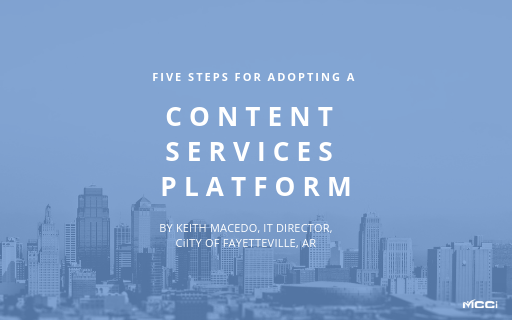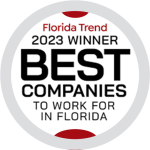In the age of content services, many organizations already have some sort of technology in place for document management- usually in a scan and retrieve capacity. As strategic executives look to make the shift, they are faced with many challenges in ensuring a successful project, adoption, and ongoing use of the technology. Keith Macedo, IT Director for the City of Fayetteville, Arkansas, shares some advice from the success and failures found in his team’s experience of implementing Laserfiche and replacing their legacy document management system. While Fayetteville replaced their city-wide Enterprise Resource Planning (ERP) Solution, they took the opportunity to implement a best in class content services solution to complement the new ERP.
"As strategic executives look to make the shift, they are faced with many challenges in ensuring a successful project, adoption, and ongoing use of the technology."
Keith Macedo, IT Director, City of Fayetteville
Keith shared the following as the main takeaways found while implementing Laserfiche within multiple departments in the City of Fayetteville.






